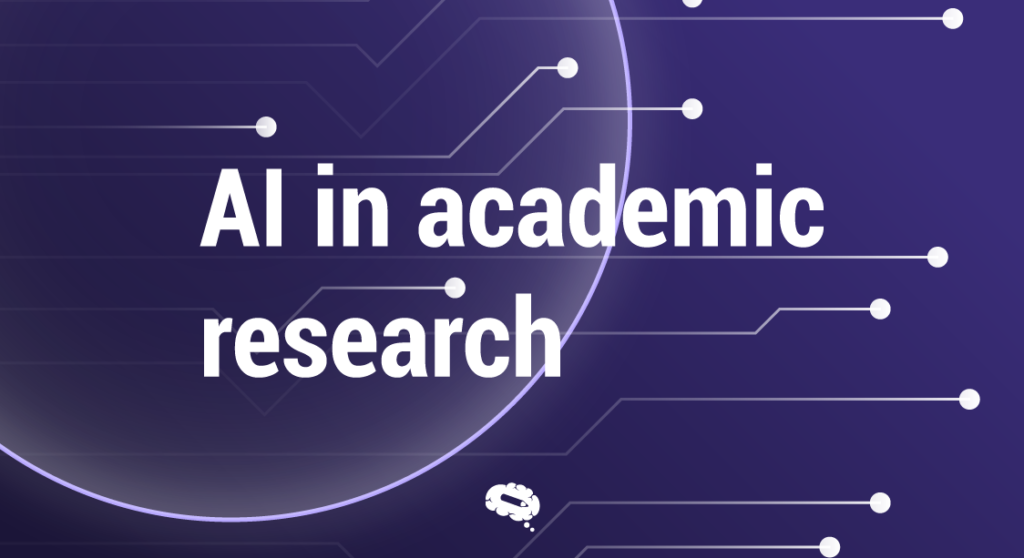
Issues of AI and Academic Transparency
Issues of AI and Academic Transparency https://opusproject.eu/wp-content/uploads/2024/05/ai-in-academic-research-blog-1024x558.png 1024 558 Open and Universal Science (OPUS) Project Open and Universal Science (OPUS) Project https://opusproject.eu/wp-content/uploads/2024/05/ai-in-academic-research-blog-1024x558.pngIn the age of artificial intelligence (AI), where algorithms increasingly shape our lives, the importance of academic transparency cannot be overstated. The fusion of AI and academia has led to remarkable advancements, yet it has also ushered in a host of ethical and transparency challenges. One of the most pressing issues in this domain is the transparency of AI research in academia.
The advent of artificial intelligence (AI) has brought about transformative changes in the landscape of academic research, presenting both unprecedented opportunities and challenges to the integrity of scholarly inquiry. While AI technologies offer powerful tools for data analysis, pattern recognition, and automation, they also introduce complexities that can undermine the integrity of research practices.
Transparency in AI research refers to the accessibility and comprehensibility of the methodologies, data, and outcomes of AI projects. It encompasses the open sharing of research findings, data sources, code implementations, and the disclosure of potential biases or limitations. While transparency is a cornerstone of scientific progress, its application in the realm of AI has been inconsistent and fraught with obstacles.
One of the key impacts of AI on research integrity stems from the potential for bias in data-driven methodologies. AI algorithms learn from vast datasets, and the quality and representativeness of these datasets profoundly influence their outcomes. However, datasets often reflect existing societal biases, leading to algorithmic biases that perpetuate discrimination or reinforce stereotypes. This can skew research findings and undermine the objectivity and fairness of scientific inquiry.
Furthermore, concerns surrounding AI and academic transparency is the lack of standardized practices. Unlike traditional scientific fields where peer review and replication are fundamental to the validation process, AI research often operates in a more opaque environment. Many AI models are developed by private companies or research institutions, leading to proprietary concerns and a reluctance to share code or data.
This lack of transparency not only inhibits scientific progress but also raises ethical concerns. Without access to the underlying data and methodologies, it becomes challenging to assess the validity of AI models or identify potential biases. In fields such as healthcare or criminal justice, where AI systems are increasingly deployed, opaque algorithms can perpetuate discrimination or exacerbate disparities.
Moreover, the reproducibility crisis looms large over AI research. Reproducibility, the ability to independently replicate research findings, is integral to the scientific method. However, many AI studies suffer from a lack of reproducibility due to undisclosed parameters, incomplete documentation, or inaccessible data. This hampers the credibility of AI research and undermines public trust in the technology.
In addition, the opacity of AI systems poses a significant challenge to research transparency and reproducibility. Many AI models operate as “black boxes,” meaning that their internal mechanisms are opaque and difficult to interpret. Without visibility into how AI algorithms arrive at their conclusions, researchers face obstacles in replicating findings or understanding the underlying factors driving their results. This opacity undermines the principles of openness and accountability that are essential for ensuring the rigor and credibility of scientific research.
Addressing the issue of AI and academic transparency requires a multifaceted approach. Firstly, there needs to be a cultural shift within the AI research community towards prioritizing transparency and open science practices. Researchers should be encouraged to share their code, data, and methodologies openly, fostering collaboration and scrutiny.
Funding agencies and academic institutions play a pivotal role in promoting transparency standards. They can incentivize transparency through grant requirements or tenure criteria, encouraging researchers to adhere to best practices in data sharing and reproducibility. Additionally, funding should be allocated towards developing tools and platforms that facilitate transparent AI research, such as data repositories or model-sharing platforms.
Furthermore, regulatory interventions may be necessary to ensure transparency in AI development and deployment. Governments can enact policies that mandate the disclosure of AI algorithms used in critical applications, such as healthcare or finance, along with rigorous auditing mechanisms to assess their fairness and safety.
The rise of interdisciplinary collaboration is another promising avenue for enhancing transparency in AI research. By involving experts from diverse fields such as ethics, law, and social sciences, AI researchers can gain valuable insights into the societal implications of their work and implement safeguards against potential harms.
The proliferation of AI-generated content raises concerns about plagiarism and intellectual property rights. AI technologies can generate text, images, and even entire research papers with minimal human intervention, blurring the lines between original work and automated content. This poses challenges for academic integrity, as distinguishing between genuine research contributions and AI-generated content becomes increasingly difficult. Additionally, the lack of clear guidelines and regulations regarding the use of AI-generated content further complicates matters and underscores the need for ethical frameworks to govern its use in research.
Tackling the impact of AI on the integrity of research requires a concerted effort to develop ethical guidelines, promote transparency, and foster interdisciplinary collaboration. Researchers must be vigilant in identifying and mitigating biases in AI algorithms, ensuring that their methodologies are transparent and reproducible, and upholding principles of academic honesty and attribution. Moreover, policymakers, funding agencies, and academic institutions must work together to establish clear guidelines and standards for the responsible use of AI in research, balancing innovation with ethical considerations and safeguarding the integrity of scholarly inquiry in the digital age.
Ultimately, the pursuit of transparency in AI research is not only a scientific imperative but also a moral one. As AI systems become increasingly integrated into society, transparency is essential for fostering accountability, mitigating risks, and ensuring that AI serves the common good. By embracing transparency as a guiding principle, the AI research community can pave the way for a more ethical, inclusive, and trustworthy AI future.
Photo via Mind the Graph
- Posted In:
- Open Science News




